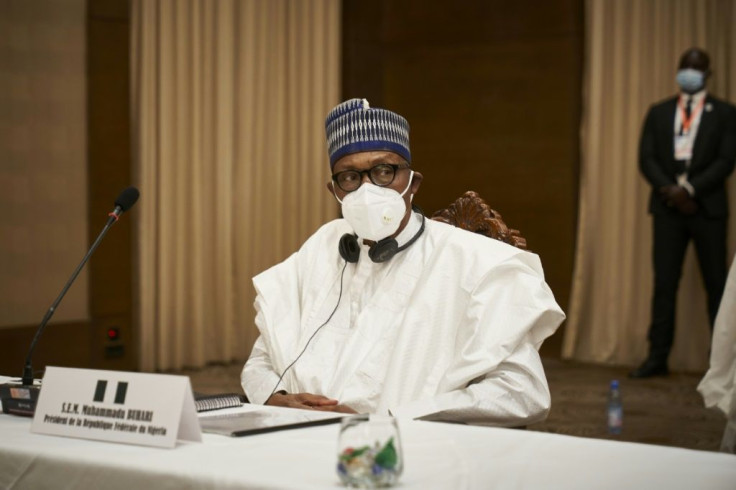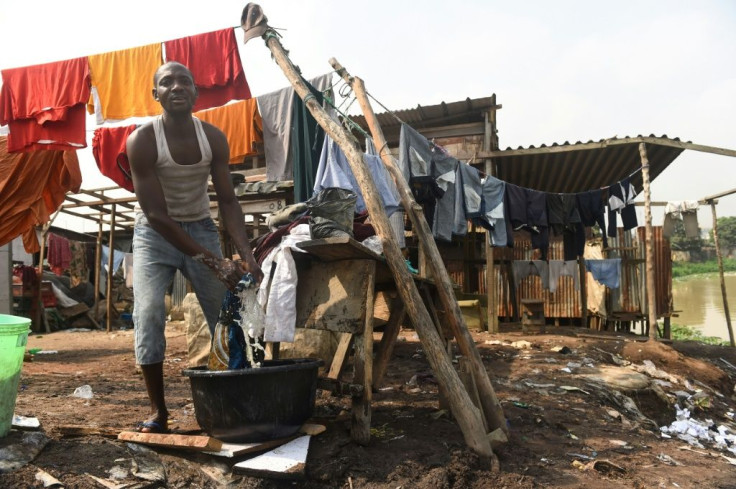Nigeria Leader Urges 'Healing' As Country Turns 60
Nigerian President Muhammadu Buhari called for "national healing" on Thursday as the West African giant marked 60 years of independence in the face of deep economic and security challenges.
Africa's most populous nation is holding scaled-down celebrations due to the coronavirus pandemic to commemorate six decades since it gained self-rule from Britain in 1960.
Buhari, wearing a facemask, inspected a military parade from the back of an open-top truck at a sparsely-attended stadium in the capital Abuja.
In an earlier televised speech he insisted that Nigeria was "bound by destiny to be the largest and greatest black nation on earth" but faced major problems.
"Today, we grapple with multiple challenges with a population exceeding 200 million," Buhari, 77, said.
"Our economy along with every single economy in the world is in crisis. We still face security challenges in parts of the country, while our society suffers from a high loss of moral rectitude which is driven by unbridled craving for political control."
Africa's biggest oil producer has been battered by the global economic fallout from the pandemic as a drop in crude prices has robbed it of key revenues.

The country is battling a decade-long jihadist insurgency in its northeast and has failed to tamp down bloody clashes, kidnappings and insecurity in the northwest.
Almost half of the population is estimated to live in extreme poverty, and rampant corruption has drained away decades of oil wealth.
The deep-seated woes are a far cry from the widespread optimism that greeted independence.
But those hopes evaporated as the country went through coups, a civil war that left a million dead and over thirty years of military dictatorship.
The nation still struggles for unity as the toxic legacy of Britain's divide-and-rule strategy continues to pit regions and ethnic groups against each other.
"An underlying cause of most of the problems we have faced as a nation is our consistent harping on artificially contrived fault-lines," Buhari said.
"We need to begin a sincere process of national healing, and this anniversary presents a genuine opportunity to eliminate old and outworn perceptions."

Buhari, who first ruled Nigeria as a military leader in the 1980s, has failed to make good on pledges to uproot corruption and end insecurity since he was elected in 2015.
He is currently facing popular discontent after his cash-strapped government scrapped a costly petrol subsidy that has kept a cap on pump prices.
ean-del/ri
© Copyright AFP {{Year}}. All rights reserved.





















